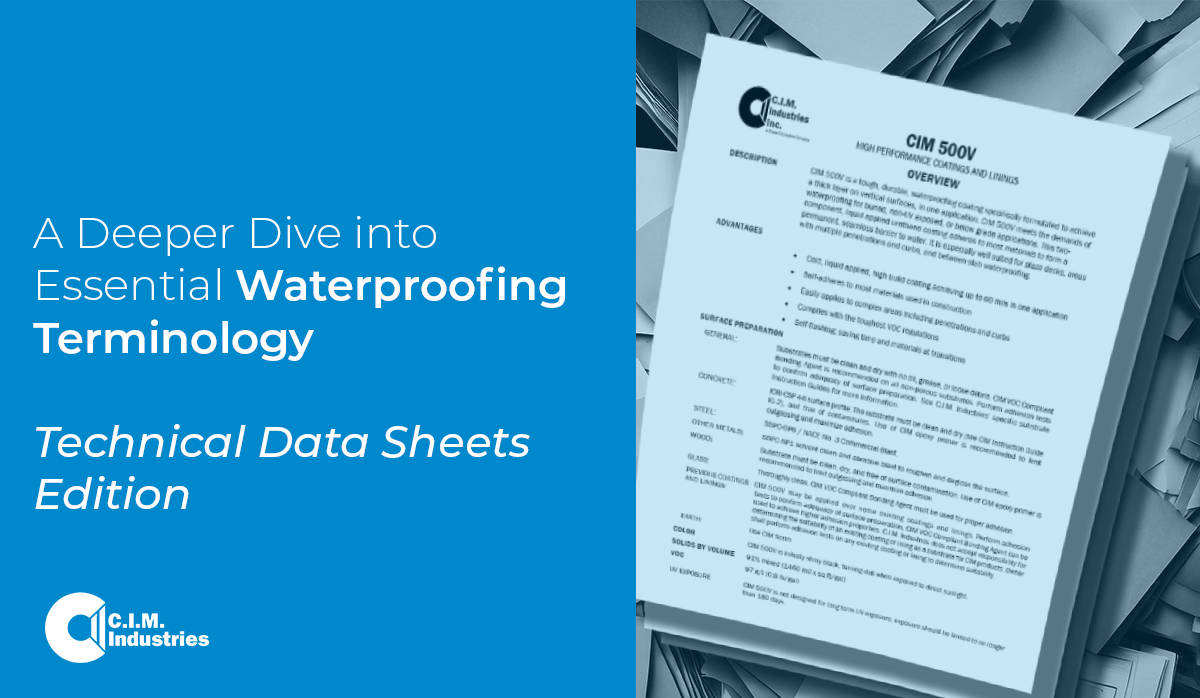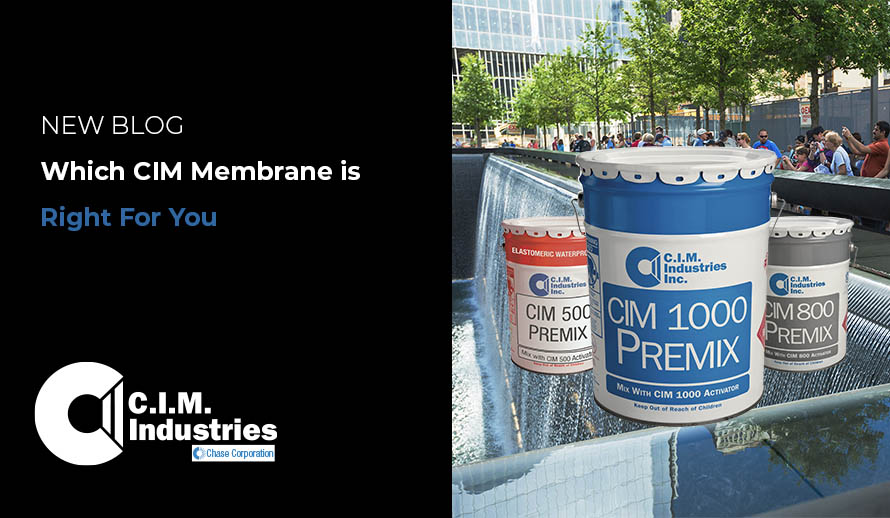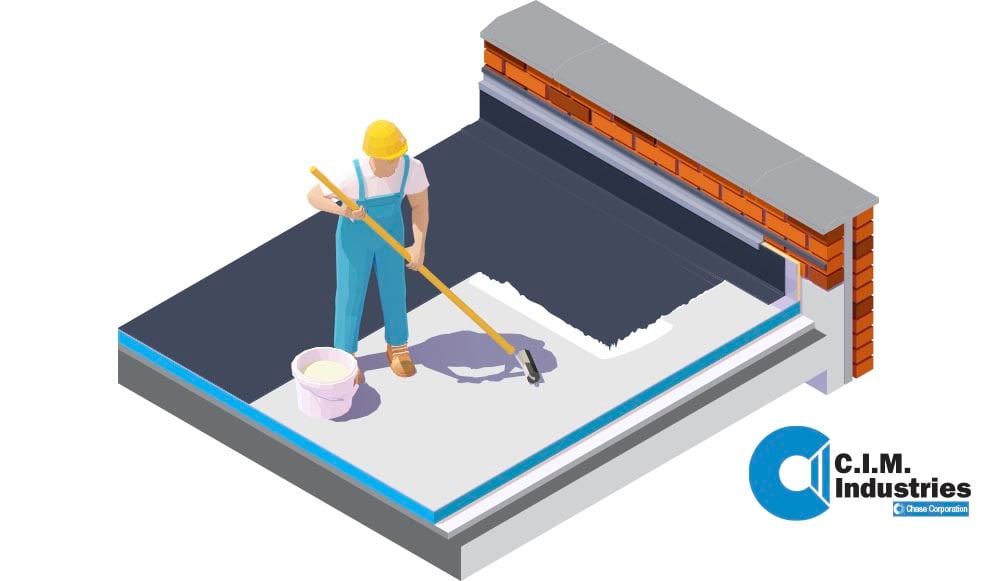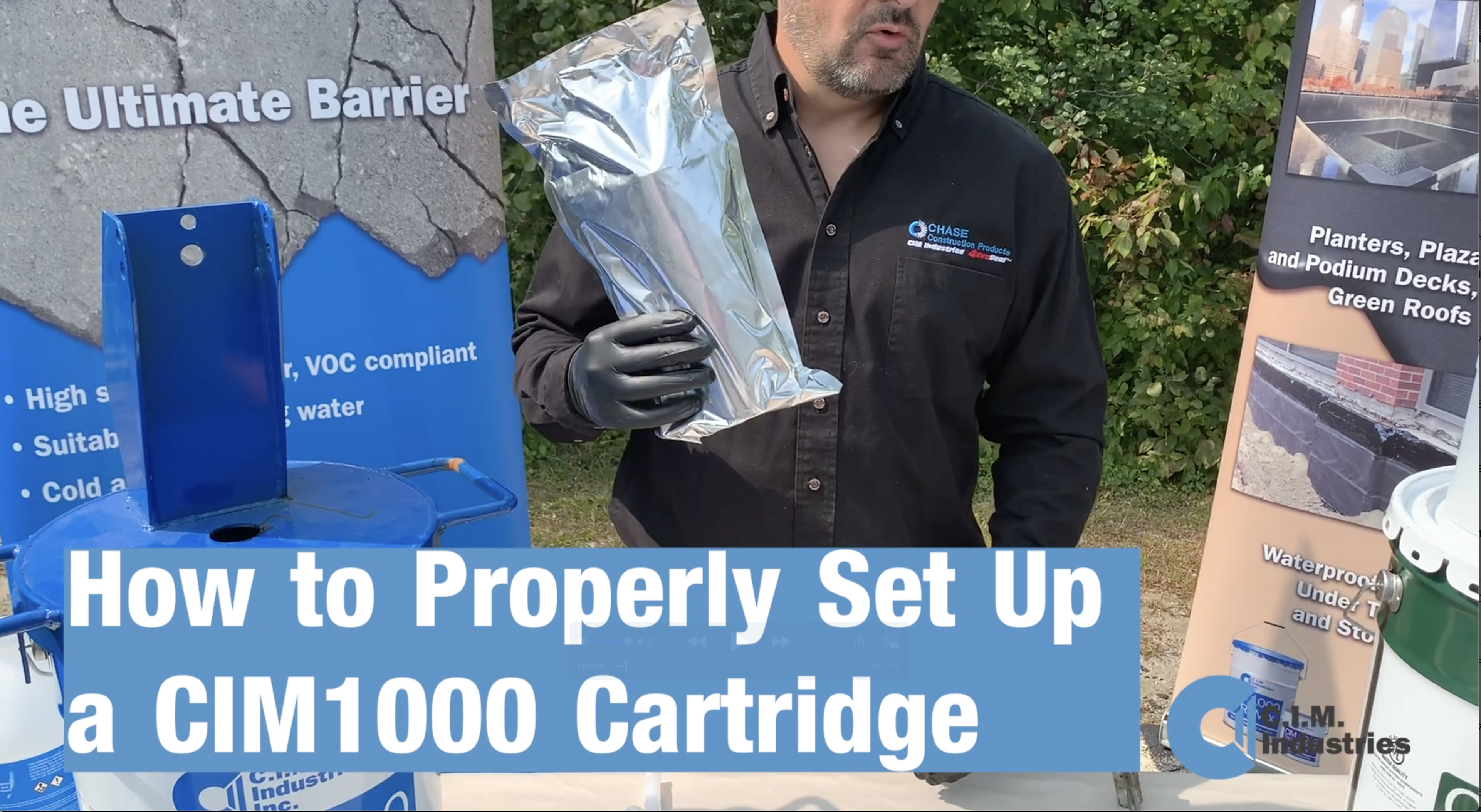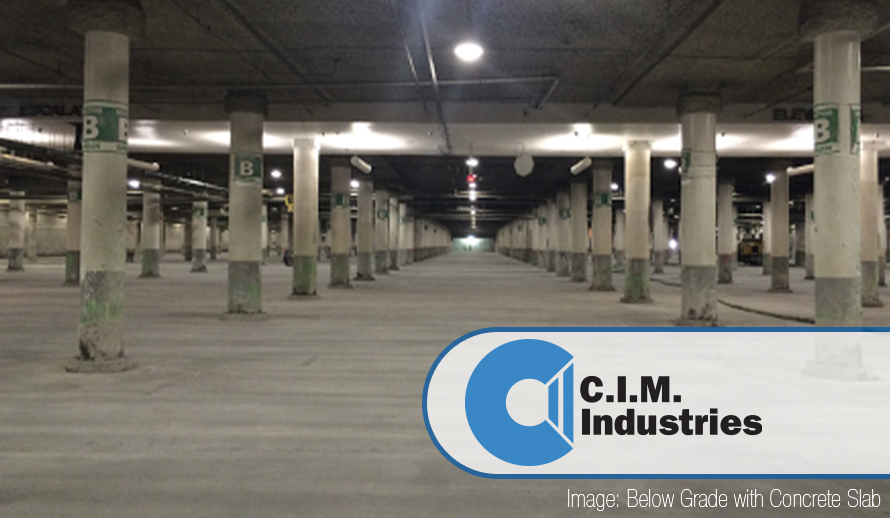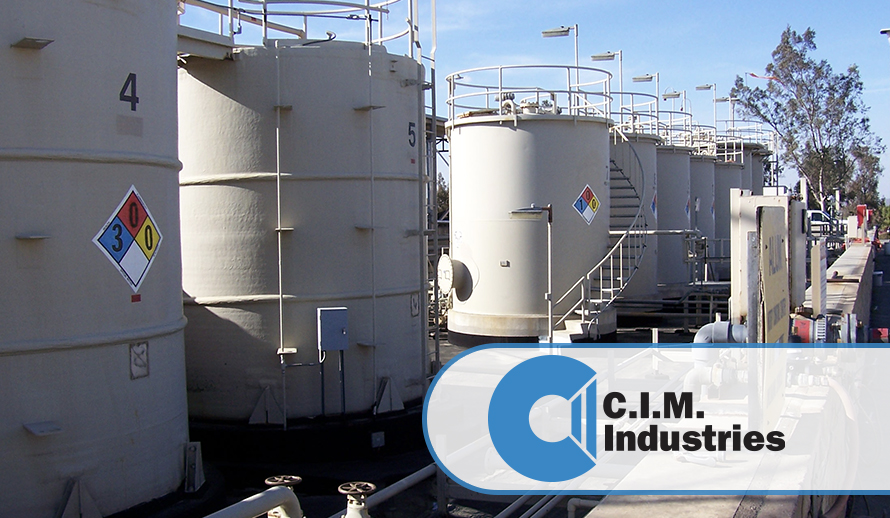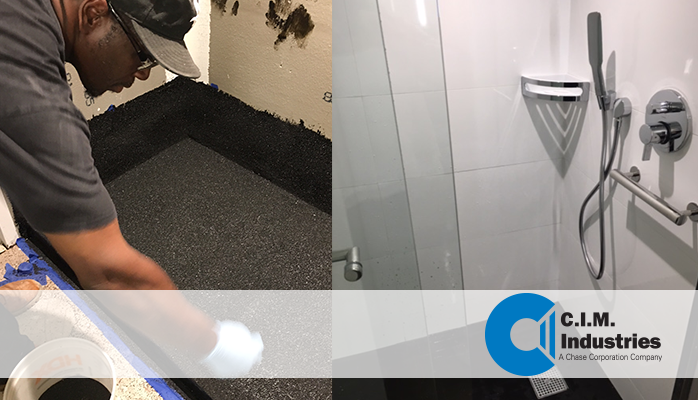In our last installment, Waterproofing Coatings Terminology 101, we reviewed some central concepts and terms in waterproofing to define the processes and materials common to our industry. In this installment, we take a deeper dive into coating terminology with a focus on the concepts documented in important product information sheets--specifically Technical Data Sheets (TDS).
TDS' are essential for every applicator as they outline, in great detail, significant product and material attributes that are essential to firmly grasp prior to coating. Let's look at what it takes to fully read these important documents.
Read More
Topics:
CIM Concrete Waterproofing,
membranes,
Technical Data Sheets
Chevron raised the standards on cold fluid-applied waterproofing membrane applications when they introduced a urethane coating system for synthetic running tracks in the 1960s. Over several decades, this urethane technology morphed into a waterproof bridge deck membrane, now widely recognized as Chase Industrial Membranes (C.I.M. Industries), the leader in the industrial waterproofing market.
Read More
Topics:
CIM Concrete Waterproofing,
waterproofing,
Bridge Deck Preparation,
Fluid-applied Waterproof Membranes
With many varieties of elastomeric coatings on the market, it should be no surprise that there are many different application methods to consider. So, how do you choose the best plan for your next project?
This article will focus on polyurethane, cold, fluid-applied, elastomeric waterproofing coatings. These products can be hand-applied using a brush, roller, or squeegee or with specialized spray equipment. The application method is often predicated by project conditions that influence the contractor's ability to apply the material as a uniform coating at the required thickness.
Read More
Topics:
CIM Cold Weather Application,
CIM Concrete Waterproofing,
Concrete curing,
Hand Applied,
Spray Applied
CIM 1000 Trowel Grade Cartridges are ideal for small applications such as penetrations, joints, cracks and many other small repairs. Cartridges are commonly used for adhesion test patches and repair of CIM coatings.
Cartridges may be partially used and re-sealed for future use, eliminating excess waste where only a small amount of CIM is needed.
Read More
Topics:
CIM 1000 Premix,
CIM Concrete Waterproofing,
waterproofing,
CIM industries
Exterior balconies are more than just features on buildings; they are places to host guests, read good books, and enjoy the views. For some, balconies become the focal points of living spaces. People think of the comfort of their living spaces but rarely think about how the building envelope (the exterior skin that acts as a barrier against water, water vapor, air and temperature) works until there is a leak or draft. That same building envelope that creates cozy living rooms and warm sunrooms and beautiful balcony spaces doesn't just provide comfort; it also provides critical protection to the entire structure, ensuring a safe living environment.
Read More
Topics:
CIM Concrete Waterproofing,
Concrete Sealant,
CIM industries,
Balcony waterproofing
Cold, fluid-applied waterproofing membranes are popular choices in the construction and building industries because of their versatility in areas where traditional sheet waterproofing or hot-applied membranes are not options. Cold, fluid-applied waterproofing membranes can be applied to both vertical and horizontal surfaces and, when installed correctly, should last for many years. Understanding and following the installation guidelines will help ensure the application's success. Cold, fluid-applied waterproofing membranes’ robust physical properties and long-lasting performance are why manufacturers publish application and installation guidelines that must be followed.
Read More
Topics:
CIM Industry,
CIM Concrete Waterproofing,
Concrete Waterproofing,
Concrete Sealant,
Fluid-applied Waterproof Membranes
The construction industry faces many safety challenges as the work environment is always changing in response to the specific job at hand. One of the most challenging environments is working within confined spaces. There are numerous safety regulations in place meant to keep construction workers safe.
Read More
Topics:
CIM 1000 Premix,
Concrete coating,
CIM Concrete Waterproofing,
Potable Water Tank,
Concrete Waterproofing,
CIM industries,
Water Treatment
The importance of a well-built building structure is often taken for granted until failures start to appear. These deficiencies can be minor or major, but the results are often catastrophic. This is why consultants play an important role in the waterproofing industry and may add in saving you money in the long run. They add an extra quality assurance check before construction or after a roof or deck fails.
Read More
Topics:
Concrete coating,
CIM Industry,
CIM Concrete Waterproofing,
Concrete Sealant,
waterproofing
A waterproofing warranty is a legally binding agreement which a company guarantees that some or all its work will be free of defects, typically for a specific length of time, and is normally approved and signed by both the owner of the project as well as a representative of the company manufacturing the product. A warranty provides for a remedy in case there are certain problems with the product provided to the customer. The intent is to provide peace-of- mind to the customer, ensure the product is backed by the company and is consistent with claims related to performance and reliability of the product. If you purchase a waterproofing solution and later discover that it’s defective, you can file a claim with the company – assuming the waterproofing solution is still under warranty – to recoup some or all the cost related to the product. A warranty is essentially a company’s assurance that its product will live up to its claims.
Read More
Topics:
Concrete coating,
CIM Industry,
CIM Concrete Waterproofing,
Concrete Waterproofing,
Waterproofing tiles
When installing tile, whether it’s flooring for a restaurant kitchen, a swimming pool or a patio deck, the process should include waterproofing the substrate prior to the tile installation.
Read More
Topics:
CIM 1000 Premix,
CIM Industry,
CIM Concrete Waterproofing,
Waterproofing tiles

